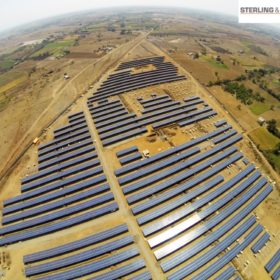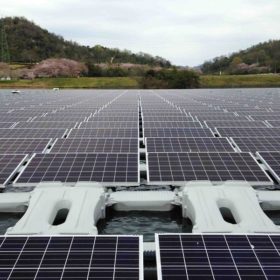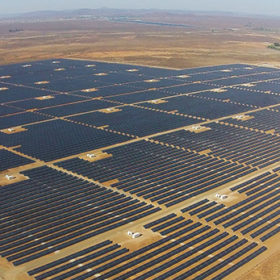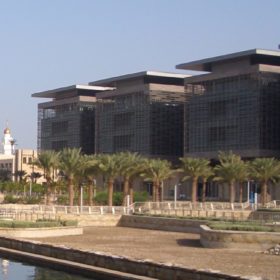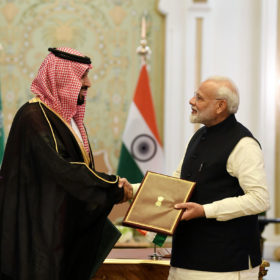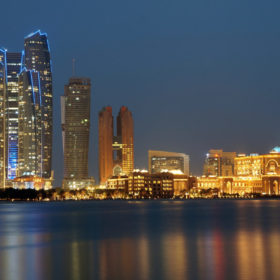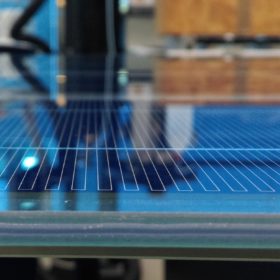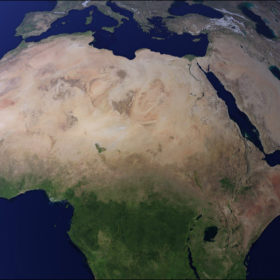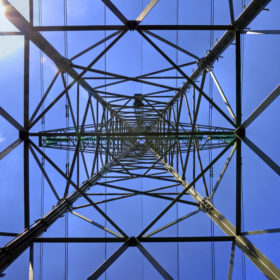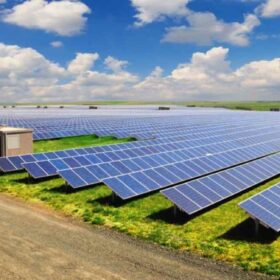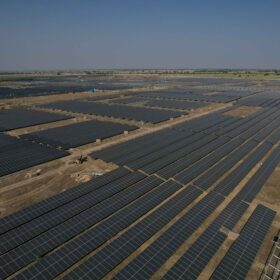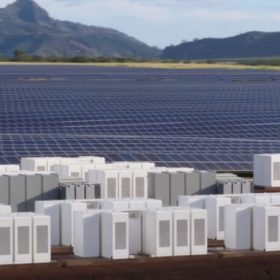IEEFA: Why India can’t match the Gulf region’s record-low solar tariffs
India’s solar tariffs—whilst some of the lowest in the world—are almost double the Gulf region’s US¢1.35-1.80/kWh.
Larsen & Toubro wins 20 MW floating solar project for NTPC
The grid-connected solar project shall come up at a reservoir of NTPC’s Auraiya Gas Power Plant in Uttar Pradesh. It is to be developed under Open category, allowing use of solar cells and modules of any origin.
Sterling and Wilson Solar wins Middle East award for utility-scale project
The Mumbai-based solar EPC solutions provider has to its credit 9.2 GWp of solar power projects (commissioned and under construction) globally, including 3.05 GWp in the MENA region.
Stretching exercises for crystalline silicon solar cells
Researchers from Saudi Arabia’s King Abdullah University of Science and Technology have created flexible solar cells made of crystalline silicon. They claim to have stretched a crystalline silicon cell’s surface by around 95% while maintaining conversion efficiency of around 19%.
Renewable energy MoU with Saudi Arabia gets cabinet nod
Project development and value chain localization are the focus areas for cooperation between the two countries.
Abu Dhabi’s Masdar invests $150 milion in Hero Future Energies
The clean tech company will use the amount to fund its expansion as it plans to reach 5 GW of solar capacity in the next two or three years.
India slaps anti-dumping duty on solar EVA sheets
The Directorate General of Foreign Trade (DGTR) has concluded that the imposition of a duty, in the range of $537-1,559/metric ton, is required to offset the injury caused by imports of solar ethylene vinyl acetate (EVA) sheets from China, Malaysia, Saudi Arabia and Thailand. The harshest penalty—$1,559/metric ton (MT)—has been imposed on sheets supplied from any Saudi manufacturer other than Saudi Specialized Products.
Solar EVA sheets attract AD duty for five years
Following a petition by domestic manufacturers seeking legal protection under anti-dumping laws, the Directorate General of Trade Remedies has recommended the imposition of duties ranging from $537-1,559/metric ton on solar ethylene vinyl acetate sheets imported from China, Malaysia, Saudi Arabia and Thailand.
The long read: The untapped potential of the MENA region
The region’s climate, developing economies and demographic growth are driving increased electricity demand in the Middle East and North Africa. However, as a hub of conventional energy supply, the region has been slow to embrace PV. To capture more of the value chain and deliver the full potential of solar, there are increasing calls for distributed generation deployment to play a bigger role.
Saudi Arabia launches tender for 1.5 GW of solar capacity
The Renewable Energy Project Development Office is tendering seven large-scale IPP solar projects. The exercise is part of Round 2 of the Saudi National Renewable program, which is expected to allocate almost 2.2 GW of PV capacity this year.
